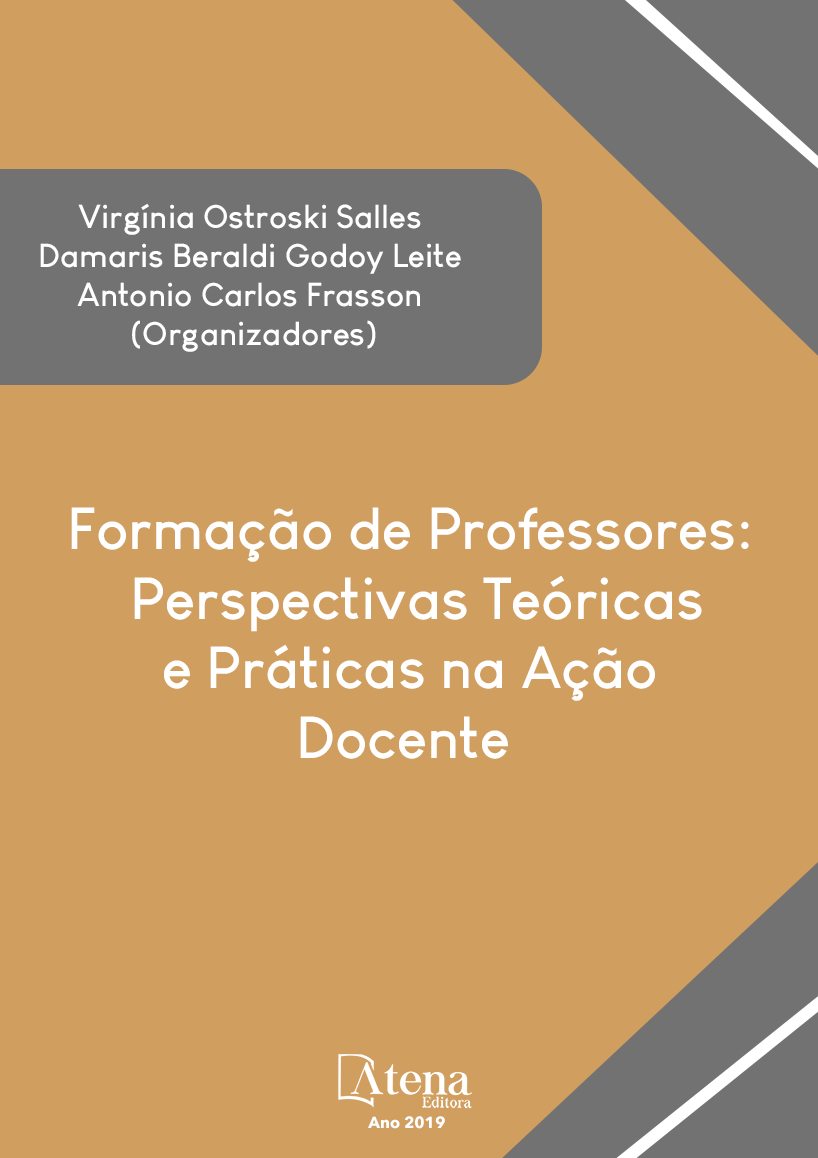
ENSINAR CIÊNCIAS NO ENSINO FUNDAMENTAL: CONSIDERAÇÕES SOBRE O ENSINO INVESTIGATIVO
Para as discussões presentes
neste capítulo parte-se da importância de
ensinar Ciências nos anos iniciais do Ensino
Fundamental, seja pela aproximação das
crianças com explicações de caráter científico
para justificar fenômenos do mundo natural,
seja por seus reflexos na formação do alunocidadão
crítico e participante. A partir disso,
objetiva-se apresentar considerações sobre
o ensino e aprendizagem em Ciências, em
especial, destaca-se o ensino investigativo.
Para tanto, são realizadas discussões no
âmbito desta área do conhecimento, por meio
da bibliografia especializada, bem como são
apresentados, em linhas gerais, os resultados de
uma formação continuada em serviço efetivada
junto a professores do Ensino Fundamental
I, com vistas a promover um estudo mais
aprofundado sobre as Sequências de Ensino
Investigativas (SEI). Dessa maneira, o trabalho
estrutura-se em quatro momentos,sendo o
primeiro com pressupostos e definições sobre
o ensino de ciências. No segundo, enfocamse
as tendências de organização do trabalho
didático em Ciências, seguido de reflexões
sobre o ensino investigativo. Em seguida,
ressalva-se sobre anecessidade de ouvir os
estudantes e suas respectivas necessidades
para, por conseguinte, planejar e propor
cursos de formação continuada. Por fim,
socializam-se possíveis ações envolvendo o
ensino investigativo. Conclui-se que é possível
trabalhar os conteúdos de Ciências por meio
de uma metodologia de trabalho pautada no
ensino investigativo, compreendendo-o como
o propulsor de aprendizagens significativas e
prazerosas, em que os alunos e professores são
sujeitos ativos reciprocamente na construção
de conhecimentos.
ENSINAR CIÊNCIAS NO ENSINO FUNDAMENTAL: CONSIDERAÇÕES SOBRE O ENSINO INVESTIGATIVO
-
DOI: 10.22533/at.ed.8711919113
-
Palavras-chave: Ensino de Ciências. Ensino Investigativo. Aprendizagem.
-
Keywords: Science Teaching. Investigative Teaching.Learning.
-
Abstract:
For the present discussions in
this chapter, it is important to teach science
in the elementary school´s initial years, either
by approaching children with explanations of a scientific nature to justify natural
world phenomena, or by their reflections in the formation of a critical and participant
student-citizen. From this, we aim to present considerations about teaching and
learning in science, in particular, investigative teaching is highlighted. For this purpose,
discussions are held within this knowledge field, through specialized bibliography, as
well as the results of ongoing in-service training with primary school teachers, with a
view to promoting a study of investigative teaching sequences. In this way, the work
is structured in four moments, the first one with assumptions and definitions about
science teaching. In the second, we focus on trends in the organization of didactic
work in science, followed by reflections on research teaching. The need to listen
the students and their needs is therefore emphasized in order to plan and propose
continuing education courses. Finally, possible actions involving investigative teaching
are socialized. It is concluded that it is possible to work Science contents through
a work methodology based on research teaching, understanding it as the propeller
of meaningful and pleasurable learning, in which students and teachers are active
subjects in the knowledge construction.
-
Número de páginas: 15
- Caroline Elizabel Blaszko
- Amanda de Mattos Pereira Mano
- Bruno


